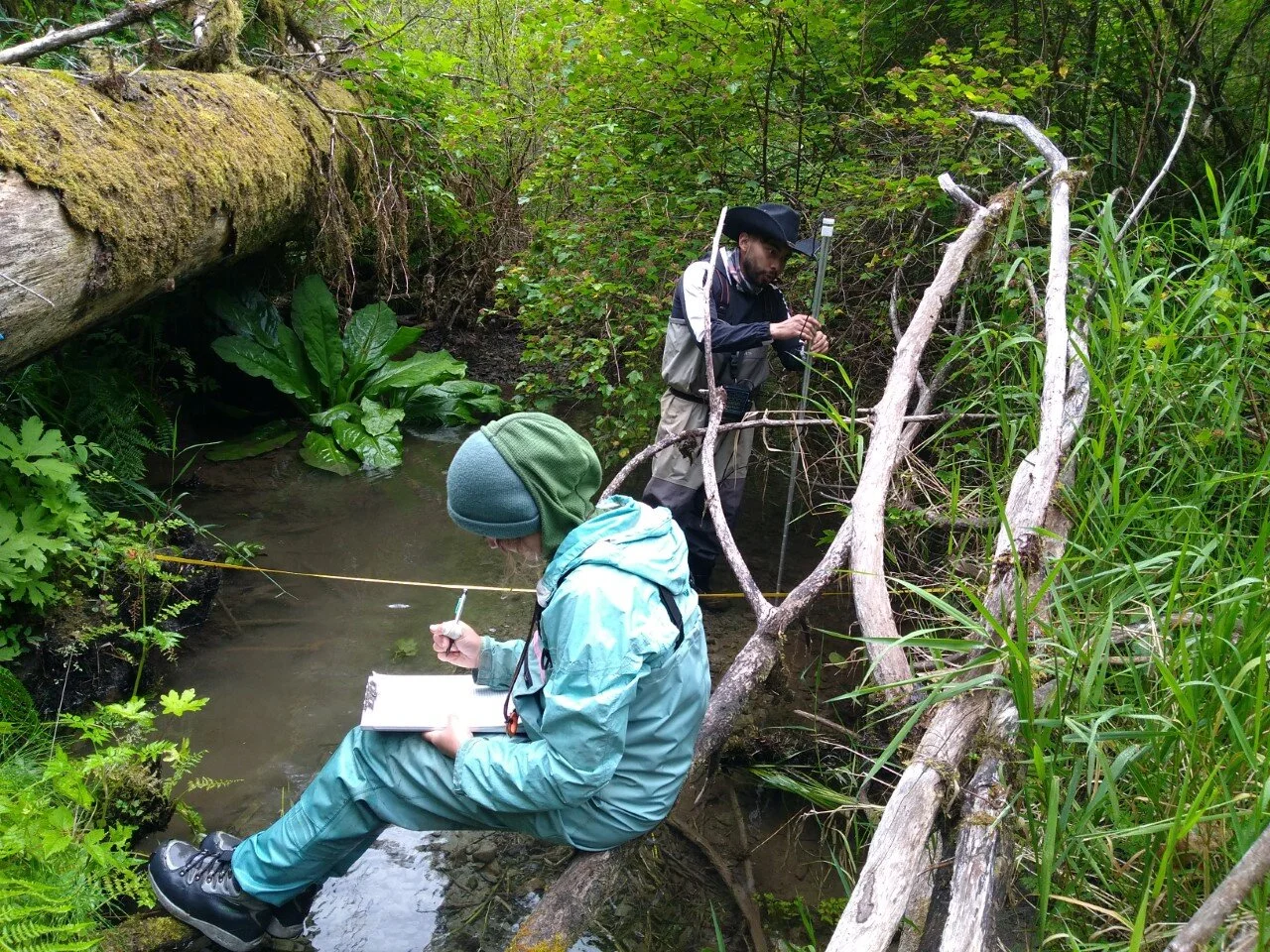
Reed Canarygrass Research Program
The Reed Canarygrass Research Program (RCRP) is a long-term ecological research program focused on measuring stream health parameters in relation to the colonization and management of the invasive plant reed canarygrass (Phalaris arundinacea).
Why it’s important
Reed canarygrass threatens riverine and wetland functions, biodiversity, and habitats, as it rapidly colonizes aquatic ecosystems.
This non-native grass outcompetes and displaces native plants, leading to a degradation of overall habitat conditions and biological diversity. Colonization alters habitat structure and functions by creating dense monocultures with thick sod root systems. Reed canarygrass can alter water velocity, temperature, and sedimentation. Depending on the environment, reed canarygrass has the potential to fill stream channels and wetlands, or lead to channel incision by hardening banks with the thick sod roots. Yet, few studies have investigated the mechanisms or efficacy of reed canarygrass to degrade critical salmonid habitat in the Pacific Northwest.
This program is intended to be of benefit to all restoration efforts and invasive plant managers in the Pacific Northwest region, offering opportunity for an improved and targeted effort to control invasive reed canarygrass.
Attributes of Interest
Water & air temperature
Dissolved oxygen
Flow velocity
Sediment characteristics
Light availability
Plant cover
Wilson Creek Study Site
Currently, 10KYI’s Reed Canarygrass Monitoring Program is in its second year of data collection. In 2019, a pilot study was implemented (funded by Coast Salmon Partnership) on Wilson Creek, a tributary to the Bogachiel River in Clallam County. The pilot study established 6 cross-stream transects within an approximately 200-meter reach of Wilson Creek. These transects delineate where vegetation surveys, and light availability (photosynthetically active radiation or PAR for short) measurements are collected. They also serve as a reference point for dissolved oxygen and flow measurements. As the transect crosses the stream, sensors have been installed to collect the temperature of the water at regular, twenty-minute intervals.
Irely Creek Study Site
In 2020, a second study location established along a 600-meter reach of Irely Creek, a tributary to the Quinault River within the Big Creek drainage of Olympic National Park. Following lessons learned from the pilot study, standard operating procedures were updated and ten cross-stream transects were installed. The Irely Creek study location will be the model for future site installations and subsequent sampling procedures. Information on the Irely Creek study location may be found here.
The effects of reed canarygrass (Phalaris arundinacea) on cold water streams of the Olympic Peninsula
(Celia Thurman- 10,000 Years Institute, Lara Hakam- 10,000 Years Institute, Onyx Yskamp - 10,000 Years Institute)
Pacific Northwest Chapter – Society for Freshwater Science
Annual Chapter Meeting, October 26-28th, 2021
Abstract:
Reed canarygrass (Phalaris arundinacea L.; RCG) is a rhizomatous, invasive grass that rapidly and aggressively colonizes wetlands, floodplains, and riparian zones. While the impacts associated with reed canarygrass-invaded wetlands have been investigated and reported, little information is available regarding its effect on biota and habitats in the cold-water streams of the Pacific Northwest. Consequently, 10,000 Years Institute has established two study sites along salmon-bearing streams on the Olympic Peninsula that are currently infested with reed canarygrass.
We have collected water and air temperature, dissolved oxygen (DO), stream velocity, and vegetation data for two years at these study sites. After four years, we plan to treat the reed canarygrass and continue the study for another two years to assess response.
After the first two years of data collection, it appears that changes in flow, climate, and presence of beaver dams may overshadow any RCG-driven impacts on water quantity and quality, as no significant effect has been measured for stream temperature related to reed canarygrass infestation. We expect to see more significant results as this study continues and we can assess the impacts of removing reed canarygrass from these reaches.




